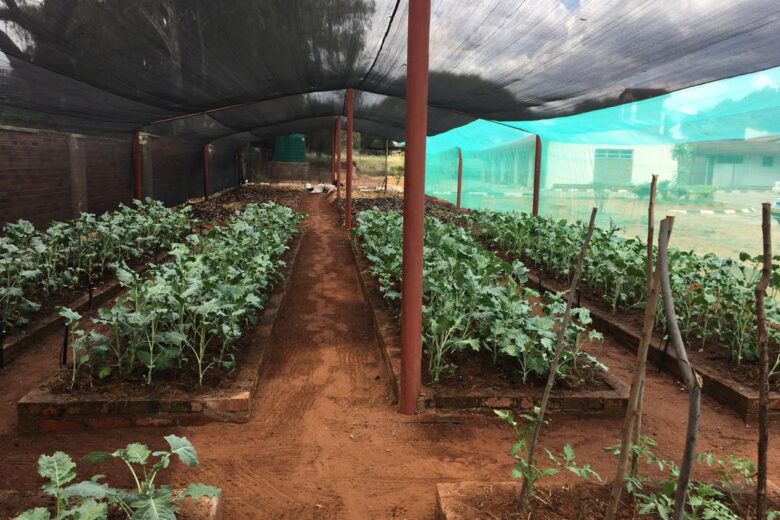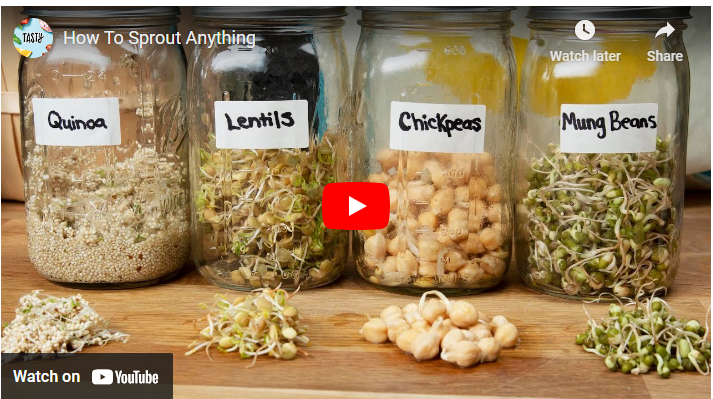Sprouting grains is a simple and nutritious process that involves germinating seeds to unlock their full potential. Not only does sprouting enhance the flavor and texture of grains, but it also boosts their nutritional value.
To sprout grains, such as wheat or barley, rinse them well and soak them in water for about 8-12 hours. Drain the water, spread the grains on a sprouting tray or a moist cloth, and keep them in a warm, dark place, rinsing them twice a day until they sprout, which usually takes around 1-3 days.
In this comprehensive guide, we will explore the art of sprouting grains and provide you with a step-by-step approach to achieve successful results.
Whether you are a seasoned sprouting enthusiast or a beginner looking to explore this technique, this article will equip you with the knowledge you need to sprout grains effectively.
How To Sprout Grain
Not all grains are suitable for sprouting. Some popular grains that can be sprouted include:
- Wheat
- Barley
- Rye
- Oats
- Quinoa
- Brown rice
- Buckwheat
- Amaranth
Preparing Grains for Sprouting
Before sprouting grains, it is essential to prepare them properly. Here are the steps to prepare grains for sprouting:
Select high-quality organic grains:
Choose grains that are free from chemical treatments, pesticides, or genetic modifications.
Clean the grains:
Rinse the grains thoroughly under running water to remove any dust, dirt, or debris.
Soak the grains:
Place the grains in a bowl and cover them with filtered water. Allow them to soak for the recommended duration, which may vary depending on the type of grain.
Rinse and drain:
After soaking, drain the water and rinse the grains again. This helps to remove any residual debris and activates the sprouting process.
Step-by-Step Guide to Sprouting Grains
Now let’s dive into the step-by-step process of sprouting grains:
Step 1: Soaking
Measure the desired amount of grains.
Place the grains in a sprouting jar or a glass container.
Add filtered water to cover the grains completely.
Let the grains soak for the recommended time, usually 8 to 12 hours for most grains.
Ensure the container is covered with a breathable lid or cloth during soaking.
Step 2: Draining
After the soaking period, drain the water from the container.
Tilt the jar at an angle to allow any excess water to drain out.
Rinse the grains gently under running water to remove residue.
Step 3: Sprouting
Place the jar in an inverted position at a 45-degree angle to allow proper airflow.
Store the jar in a cool and dark place away from direct sunlight.
Rinse the grains twice a day with fresh water to keep them moist.
Continue rinsing and draining until you see small sprouts emerging from the grains.
Step 4: Harvesting
Once the sprouts have reached the desired length, typically 1/4 to 1/2 inch, they are ready for harvest.
Rinse the sprouts thoroughly to remove any residual hulls or seed coats.
Pat them dry using a clean cloth or paper towel.
Tips for Successful Sprouting
To ensure successful sprouting, consider the following tips:
Use high-quality organic grains for better results and improved nutritional value.
Follow the recommended soaking and sprouting times for each type of grain to achieve optimal results.
Maintain proper hygiene throughout the process. Clean the sprouting containers thoroughly before each use to prevent contamination.
Rinse the sprouts regularly to keep them moist and to prevent mold or bacterial growth.
Store sprouts in airtight containers in the refrigerator to maintain freshness and extend their shelf life.
Potential Risks and Precautions
While sprouting grains is generally safe, there are a few risks to be aware of:
Bacterial Contamination: Poor hygiene or improper rinsing can lead to bacterial growth, which can cause foodborne illnesses. Always maintain clean sprouting equipment and rinse the sprouts thoroughly.
Allergies or Sensitivities: Some individuals may be allergic or sensitive to specific grains. If you have known allergies, consult with a healthcare professional before incorporating sprouted grains into your diet.
Can I sprout grains that are past their expiration date?
It is not recommended to sprout grains that are past their expiration date, as their viability and safety may be compromised.
How long do sprouted grains stay fresh?
Sprouted grains can stay fresh for up to 5-7 days when stored properly in the refrigerator.
Can I sprout grains without using a sprouting jar or container?
While using a sprouting jar or container makes the process more convenient, you can also sprout grains using a colander or a mesh strainer.
Are sprouted grains gluten-free?
Sprouted grains derived from gluten-containing grains, such as wheat or barley, still contain gluten. However, sprouting may make the gluten slightly easier to digest for some individuals with gluten sensitivity.
Can I freeze sprouted grains?
Yes, you can freeze sprouted grains. It is recommended to blanch them quickly before freezing to preserve their texture and flavor.
Conclusion
Sprouting grains is a simple and rewarding process that can significantly enhance the nutritional value of grains. By following the step-by-step guide outlined in this article, you can successfully sprout grains at home and enjoy their numerous health benefits.
Remember to choose high-quality grains, maintain hygiene, and experiment with different ways to incorporate sprouted grains into your meals. Embrace the art of sprouting and unlock a world of flavor, nutrition, and culinary possibilities.



